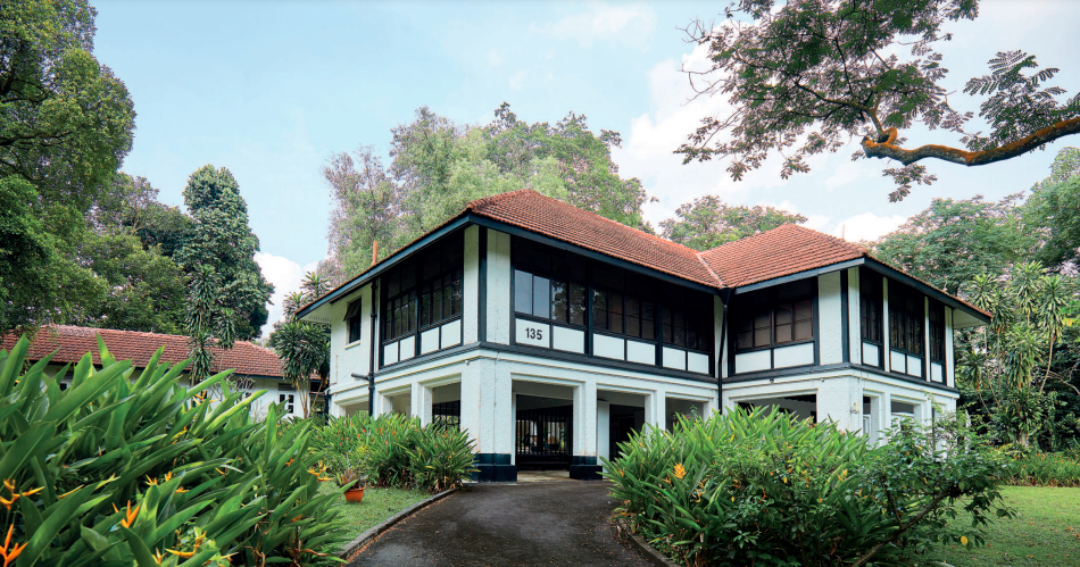The recent interest in Ridout Road properties has shone the spotlight on black-and-white houses in Singapore.
What is it like to rent one and live in one?
What are black-and-white houses?
Built between 1903 and 1941, these bungalows are a legacy of Singapore's colonial past.
Black-and-white bungalows built in the early 1900s are located across Singapore.
They can be found in central areas like Scotts Road, Goodwood Hill, Malcolm Park, and Bukit Timah, as well as rustic areas like Alexandra Park, Sembawang, Changi, and Seletar.
Their name comes from their exterior whitewashed walls coupled with black timber accents.
These bungalows were adapted to our tropical climate. For example, they are raised above the ground to provide ventilation.
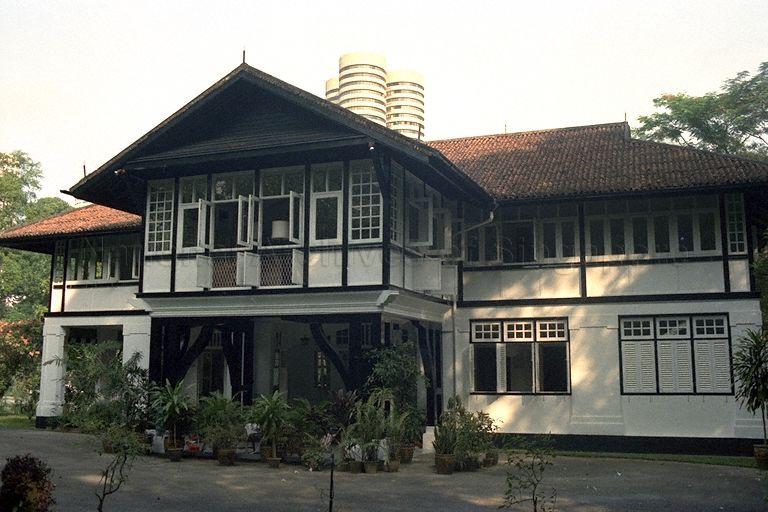 Credit: NAS
Credit: NAS
During colonial times, these bungalows were residences of the rich in Singapore, including British government officials.
Today, the black-and-white houses in Singapore are occupied by well-heeled Singaporeans, expatriates, and foreign embassies. Some have been converted into restaurants as well.
According to the recently released report on the review of the rentals of state properties at 26 and 31 Ridout Road, about 15 per cent of these black-and-white bungalows have been designated as conservation properties and another 67 per cent are safeguarded for conservation study.
These properties are subject to conservation requirements of the Urban Redevelopment Authority (URA).
About 600 black-and-white houses in Singapore
Most of the black-and-white houses in Singapore today are managed by the Singapore Land Authority (SLA).
According to the recently released report on the review of the rentals of state properties at 26 and 31 Ridout Road, the SLA is responsible for managing about 2,600 State properties.
This includes about 600 black-and-white bungalows, other landed and non-landed residential properties (e.g. semi-detached houses, terraces, and apartment blocks), former schools, former army camp sites, and shophouses.
What renting a black-and-white house is like
Black-and-white houses bungalows were built for residential use and that continues to be their predominant use.
To increase take-up, SLA with URA’s approval also rents out selected black-and-white bungalows for non-residential use, such as family offices.
Listings are available on the State Property Information Online website.
If you're thinking of renting one, the median rent as of July 2022 was S$13,000 a month, for a median land size of 38,000 square feet.
Earlier this year, a black-and-white bungalow at Ridley Park was successfully rented at S$26,444 per month.

Keen? Well, according to SLA, your average monthly income should be at least three times the offered rent or you must be assessed by SLA to be of sound financial status.
Interested parties have to submit an application form as well as supporting documents that indicate their income. These take the form of payslips or income tax statements or employer letter.
They also need to submit deposits: an application deposit equivalent to one month's offered rent and if they win the bid, a security deposit equivalent to at least three month's rent.
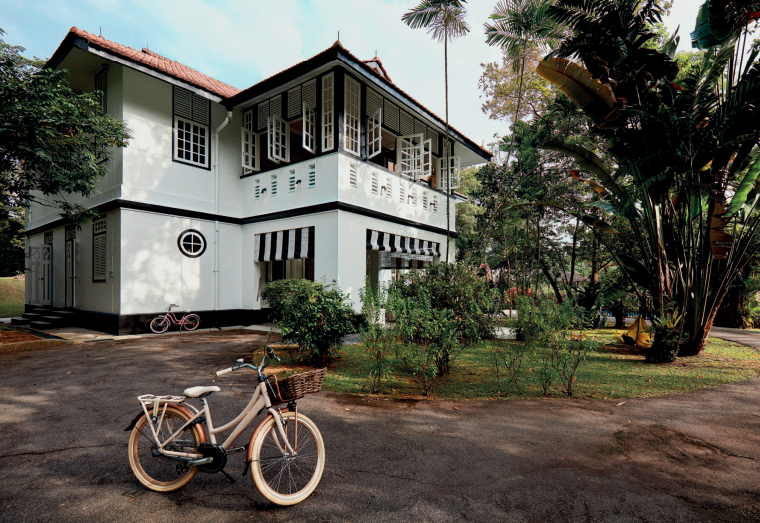 Credit: SLA
Credit: SLA
Evidently, it's expensive and it conjures an air of nostalgic luxury. But living in a black-and-white house might not live up to all that jazz.
Knight Frank Property Asset Management Pte Ltd is a managing agent which handles over 1,000 units of state property, including black-and-white houses, on behalf of SLA.
Its managing director, Peter Tan, told Mothership that due to Singapore's tropical and humid weather, black-and-white houses -- with their abundance of wood -- require a robust maintenance regime.
They require regular inspections for roof leaks, burst pipes, pest infestations (those wooden beams attract a lot of termites), mould growth, and structural wear and tear. The sprawling grounds also require regular landscaping, tree pruning and inspections for rodents.
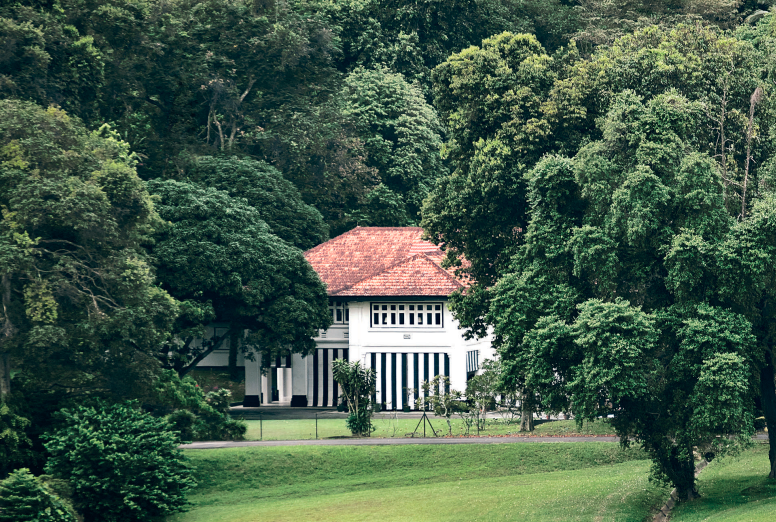 Credit: SLA
Credit: SLA
Without regular checks, the problems will get bigger and bigger and blow out of proportion one day, like a cancer that grows undetected, said Tan.
Over at Knight Frank, these maintenance of the black-and-whites houses under their care is overseen by an entire team and contractors.
Since these are heritage buildings, there is also a strict code that tenants have to abide by.
Renovation works to the property must be subject to approval by the authorities. Building exteriors cannot deviate from the classic black-and-white look.
Tenants can make changes to the interiors but at the end of the tenancy period, the house must be returned in the state it was handed over. So if they want to put in a new concrete floor or air-conditioning, that would have to be taken out when they're done renting the property.
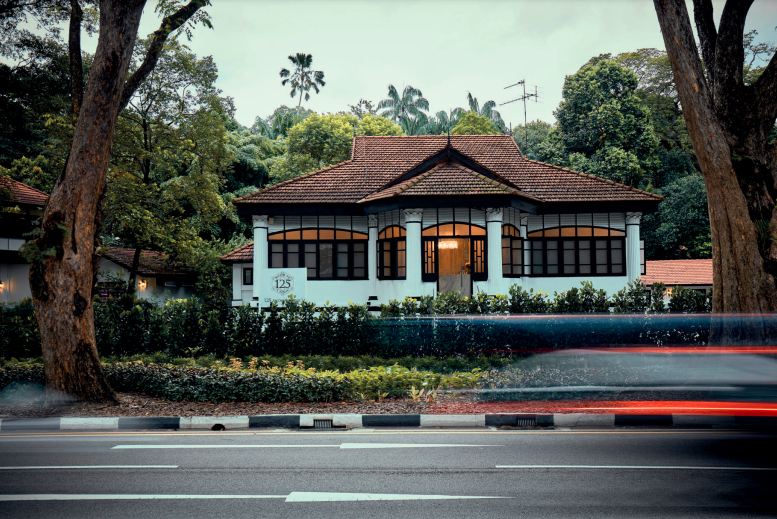 Credit: SLA
Credit: SLA
The heavy upkeep and strict rules for renting a black-and-white house is not for everyone. From Tan's experience, those who choose to rent one tend to be heritage enthusiasts who are willing (and able) to take them on.
"They know what they're in for," said Tan, "but they don't mind."
"There's a trade off. They want to be close to nature and they want to have this kind of building of this style, with rich heritage values attached to it."
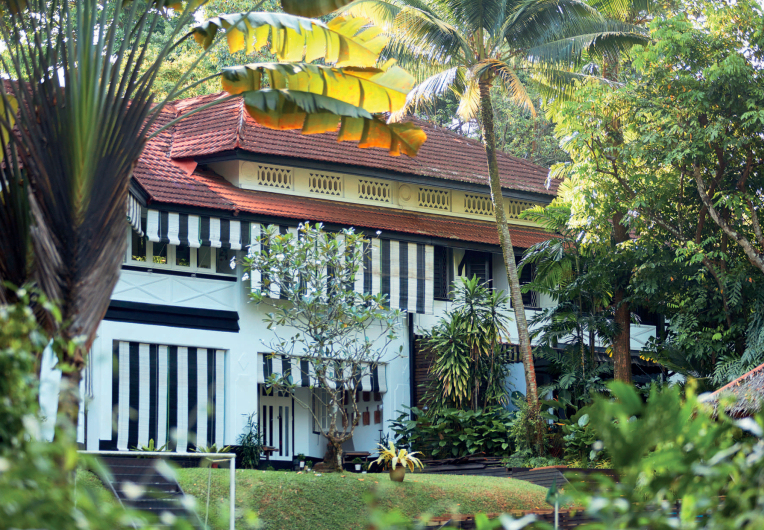 Credit: SLA
Credit: SLA
According to Tan, the bulk of black-and-white houses tend to be expats and C-suite professionals with high income streams.
But over the years, Tan has observed increasing demand from local professionals. He surmised that today's local professionals aspire for a higher standard of living or don't mind paying more for a quality experience.
@mothershipsg We had an inside look into two B/W bungalows in S'pore #tiktoksg #sgnews ♬ original sound - Mothership.sg
Related stories
Top image: SLA
If you like what you read, follow us on Facebook, Instagram, Twitter and Telegram to get the latest updates.

